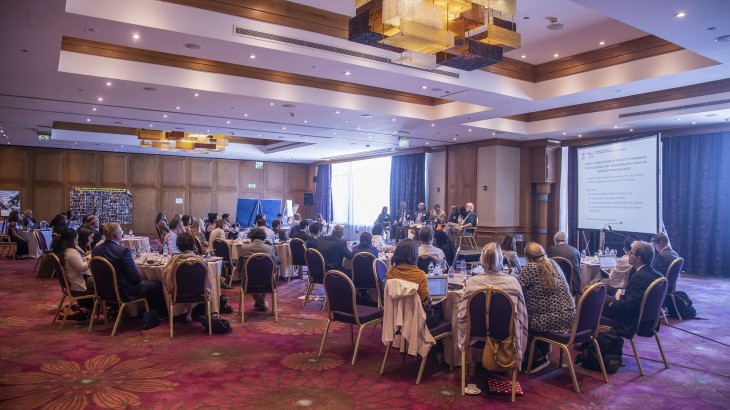
Push to improve search for missing people at Dead Sea meeting
The ICRC’s Missing Persons Project is pushing to enforce activity on missing persons.
Amman, Jordan (ICRC) – A two-day meeting to discuss how to improve the search for missing people, including victims of enforced disappearance, began today at the Dead Sea in Jordan with the participation of more than 50 experts and representatives of victims from around the world. The meeting, taking place on 3 and 4 September, is jointly organised by the International Committee of the Red Cross (ICRC) and the Bern-based organisation Swisspeace.
Improve search for missing ones in 69 States
“From our long experience, we know how much families need to know what happened to their loved ones,” said Caroline Douilliez, head of the ICRC’s Missing Persons Project. “This meeting comes at an opportune moment, given the adoption by the United Nations Security Council in June of Resolution 2474 on missing persons in armed conflict, co-sponsored by 69 States. Together we can work towards improving the search for missing people by sharing best practices and creating better guidelines and technical recommendations.” In April, the United Nations Committee on Enforced Disappearances adopted the Guiding Principles for the Search for Disappeared Persons, an essential milestone in these efforts. Participants will discuss how these principles can help guide the search for people who have gone missing for reasons other than forced disappearance, and how key points – such as the need to involve families or the importance of starting the search immediately – can best be put into practice.
SAR and bureaucratic procedures are different, not the goals
“The Guiding Principles represent a significant step towards clarifying obligations around the search for people who have been forcibly disappeared. Determining how the principles can be implemented and identifying best practices will be key to improving search procedures in different contexts,” said Lisa Ott, head of Swisspeace’s Dealing with the Past programme.
“In the Middle East, the burgeoning number of missing people is the result not only of the more recent conflicts in Syria and Yemen but also of the unsolved cases from past conflicts, such as those in Iraq, Iran, Kuwait and Lebanon,” said Jürg Montani, head of the ICRC’s delegation in Jordan. “And their families suffer terribly. Less than a week after the International Day of the Disappeared, the Jordan meeting is a reminder that we should spare no effort to make progress on this issue for their sake.”
Innovate in how to collect and share information on missing people
The ICRC Missing Persons Project is a four-year initiative to create a global community of practice and shared technical standards to tackle the issue of missing people better and support their families. The meeting in Jordan follows workshops hosted in Antigua, Guatemala, in May and Sarajevo, Bosnia and Herzegovina, in July. The workshops focused respectively on collecting and sharing information about missing migrants and on supporting the families of the missing. Swisspeace is a practice-oriented peace research institute. Together with a consortium of civil society organisations funded by the European Union, the Dealing with the Past programme helps the United Nations Committee on Enforced Disappearances raise awareness of their Guiding Principles and drives discussions on how to put them into practice.


